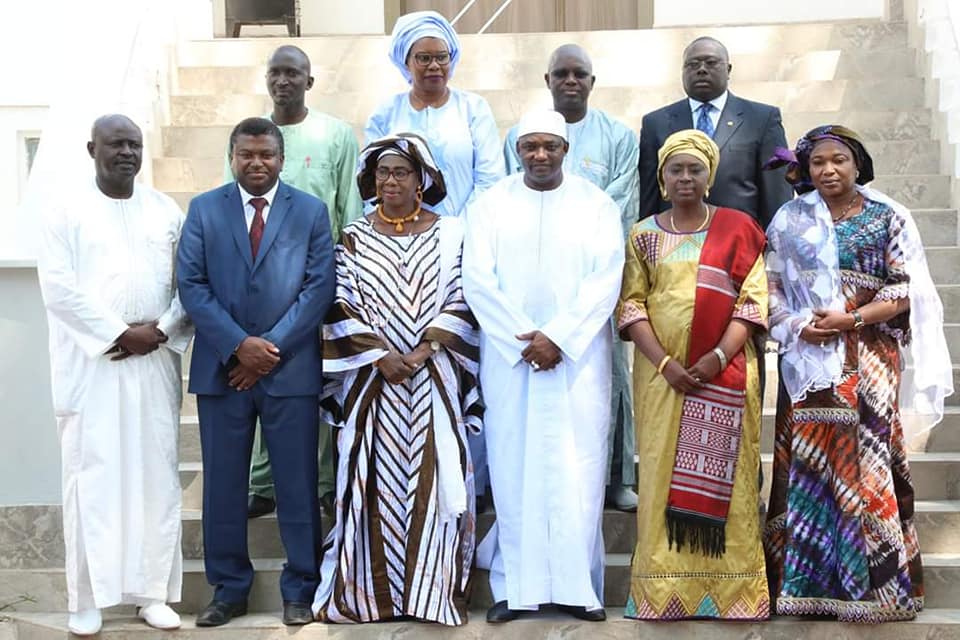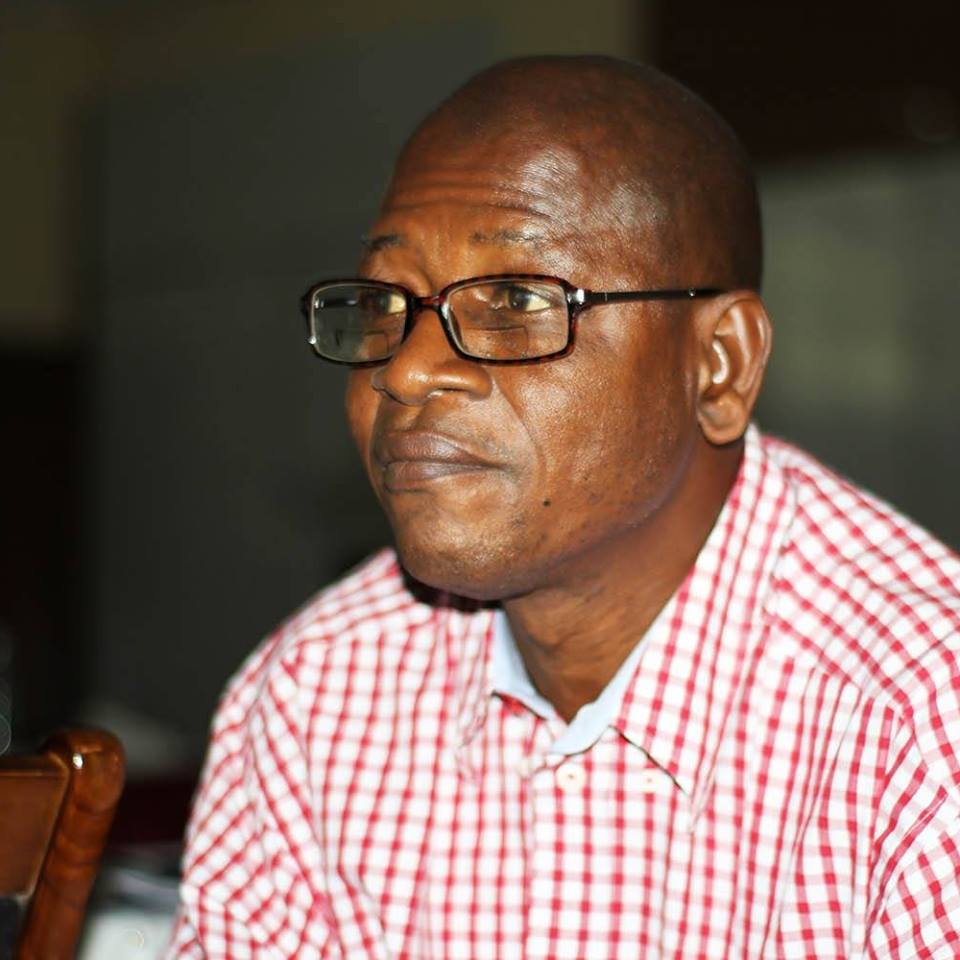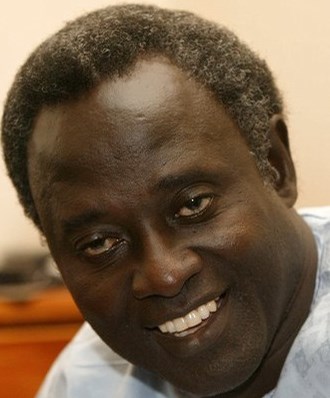President Adama Barrow has warned vice president, cabinet ministers and permanent secretaries’ swearing-in yesterday that accepting a ministerial or any public service assignment carries many implications.
He added: “These include supporting the Government’s agenda; willingness to comply with Government norms and principles; displaying due respect for public office and public institutions; loyalty to the leadership, and dedication to country and duty.”
President Barrow made remarks during the swearing-in of Dr. Isatou Touray as the vice president of the Republic, four other Cabinet Ministers and four Permanent Secretaries. Two of the new cabinet members are women increasing the total number to four.
As Vice President, Ministers and Permanent Secretaries, you are expected to provide administrative and professional guidance, while being guided by ethnical norms and sound professional values, President Barrow pointed out.
He further said the country National Development Plan (2018-2021) highlights the enormous national tasks at hand.
“Given that the nation is bigger than any individual citizen, for all public servants and patriotic citizens, national challenges and priorities must come first,” he stressed.
He called for strive to serve the people well, and unite them for national development and attend to their welfare in their best interest, calling to remember that in serving the people, ‘we are serving God, the Almighty.’
“As leaders, we ought to be considerate and compassionate, but we must be realistic and firm in ensuring that justice is done in the interest of the nation. It is this principle that has given rise to the Cabinet reshuffle resulting in the new appointments that have just been confirmed,” President told new vice president and ministers.
He pointed out that the lesson is that, sometimes, difficult decisions have to be taken to set things right.
President Barrow added this is necessary occasionally to establish order in our governance system.
He said, generally, democracy is associated with multiparty politics, elections, choice and other indicators, but holding a cabinet portfolio or the post of permanent secretary does not mean thinking and working exclusively along political lines.
“The duties and responsibilities associated with your offices oblige you to remember that you are heads of government ministries and technical experts respectively, operating within a civil service structure,” he noted.
According to him, as such, public service rules, regulations, principles and procedures should guide the discharge of your functions.
He added: “Your positions also require you to suppress your personal wishes and ambitions, and put more weight on the Government’s agenda, as this reflects the will, hopes and aspirations of the people you are meant to serve.”
President Barrow stated that being a cabinet minister or permanent secretary goes with expectations set by the people themselves, and they look forward to their fulfillment.
He went on that the greater good has to prevail over our personal, ethnic, religious, political or sectional interests, adding that it goes without doubt that at the core of government leadership is Cabinet.
“Cabinet represents and portrays the nation as a family. As a result, political differences must not corrupt, undermine or divide those of us privileged with cabinet assignments,” President Barrow told new vice president and ministers.
He added: “Collectively, we should symbolise unity, and must not instigate division. Instead, we should be a source of inspiration to unite the citizens, and work together as one nation. To achieve this, what we say and do should be consistent in both our public and private live.”
He told permanent secretaries that they are the life line of the civil service, so the professionalism and commitment they manifest in the conduct of their duty will determine how successful the country reform programme will be.
Meanwhile, he said it is obvious that all citizens are entitled to their views and ambitions, including the desire to lead.
But pointed out that good citizenship is not all about leadership, nor is it about having one’s way all the time.
“Good citizenship embodies uniting and working collectively towards a common destiny; a destiny marked by success, development, peace, stability and happiness for all.
“It is a betrayal of trust to belong to a group, yet openly or secretly oppose its ideals, objectives, values, agenda and what it stands for. In other words, one cannot operate in cabinet, or within a government system, and seek to undermine it in order to pursue any other interest,” President Barrow pointed out.
He observed that the best citizens in a nation are the genuine patriots who serve selflessly and put the nation and the greater good before any selfish interest.
“Such good citizens are not moved by greed or any undesirable pursuit. Therefore, good and patriotic citizenship is measured by one’s loyalty to the people, loyalty to the State and loyalty to the leadership of the day, noting that the leadership carries the people’s mandate, hopes and aspirations,” he stressed.
He went further that in The Gambia, our shared values are not limited to loving, caring and sharing only, as they include honesty, sincerity and developing a sense of belonging to a community composed of diverse groups.
“Those of us in Government should live by these values, and refrain from seeking to divide the nation along partisan lines.
When political gains and political beliefs or ambitions come first, we will divide the people along party affiliation, ethnicity or other social divides,” he told new vice president and ministers.
“This is unacceptable. Cabinet members and those in Government should be apolitical as regards the welfare of the people who have mandated them to run their affairs.
We must not send mixed or conflicting messages to the public.
On the contrary, we must be seen as a united body, pursuing the same goals and speaking with one voice so that the public can follow suit. To put it bluntly, we must be truly honourable and exemplary in character,” he noted.




